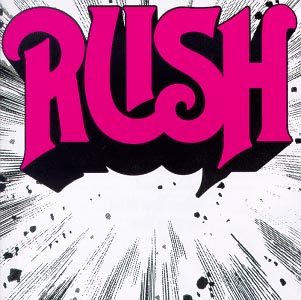When Rush recorded their first album in 1974, they had been making the rounds in Canada as a band playing the local pubs and high school dances. Most the album had been recorded during the night hours at local recording studios because of the cheaper rates, and went through a massive remixing process by Terry Brown (the first of the band’s many collaborations with him) because the band was dissatisfied with the initial sound. Lifeson and Lee, neither being terribly interested in writing lyrics, had originally asked original drummer John Rutsey to write the words, but he ended up not submitting any so lyrics were cobbled together at the last possible second.
Combined with their youth and inexperience, this may explain why the album feels as “Eh” as it does. Rush’s debut isn’t bad by any stretch, but it isn’t remarkable. It’s average, at least for the time. Rush was still high on emulating their idols in Led Zeppelin and Cream, but they may have done too good of a job, with many people writing off the band as a Led Zeppelin clone when the record first came out. They hadn’t completely found their voice yet at this time. Actually, I take that back; they had found their voice (Geddy Lee’s early singing is nothing if not distinctive, even if some find it shrill), but since they didn’t have Neil Peart’s lyrics yet, they didn’t yet know what to say.
The album starts strong though, with the building rapid fire guitar song of “Finding My Way”. A lot of the songs on Rush’s debut have a definite worship of classic rock grind, and this one owes a debt to the godfathers of the genre like Chuck Berry. Oddly, the title says more than I think even Rush themselves realized at the time: they were still finding their way in how to be themselves.
“Need Some Love” is more quickly paced, being two minutes of to-the-point, no-bullshit rock, and where Alex first starts showing his stuff as a soloist. The band has a talent for riffs and a groove, but they haven’t wowed by this point. Same with the next song, “Take A Friend”. Not to mention you see how generic and simple the lyrics are.
“Here Again” is the first long, slow song, but I hesitate to call it “epic”, unlike some of Rush’s later long form songs. It’s more dreamy, with its long passages of warbling, phase-shifted guitar. It has a great solo from Alex, but part of the problem of Rush’s early long songs is that they seem very aimless and meandering at times. They haven’t reached the point where they would have a song be long, but also tight musically and dynamically.
“What You’re Doing” has a tight, grooving riff from Alex and perhaps has Rutsey’s best drums on the record, being very energetic while keeping the beat. Rutsey himself, sadly, represents a lot of what early Rush was: competent, but not yet remarkable. Still, this track gives him a chance to show what he could do.
Sadly, what comes after this is “In The Mood”, a song that had a surprising longevity in Rush circles. This song lasted up to 1992 in the band’s set lists and medleys, and for the life of me I can’t understand why. The composition is average, and the lyrics (written by Geddy) are some of the worst and most awkward in Rush’s catalog. Easily the worst song on their debut.
“Before And After” has more dreamy, phase-shifted guitar (with some acoustics dubbed over to boot), and builds up a good groove before going into mood whiplash mode with more grinding butt rock. Sadly Rush did this a lot on their first three albums, dramatically shifting tones back to their weaknesses at the time. Fortunately they stopped doing that and went for a consistent tone and melody throughout the song.
Fortunately, they saved the best for last: their first hit “Working Man”. This song rightfully earned them their first praise among blue collar rock fans, and it’s easy to see why. The riff is big and commanding, unlike the other generic aimless rocking on this record. It’s lyrics and purposeful and resonate with the listener, showing how Rush would later champion the down-trodden individual in their best music. And the solo breakdown is consistently exciting all the way through. How they ignored this early gem of a song for so long in favor of “In The Mood” in their concert set lists I will never know.
“Working Man” was Rush’s foot in the door, but many agreed they had a long way to go as a band, and had yet to stumble upon what would define them as Rush. Shortly after recording of this album was completed, Rutsey retired from the band, saying that long touring was hard on his diabetes. Shortly after that, they would bring on Neil Peart as their drummer and lyricist, and they’d find their voice soon enough.
BEST SONG: “Working Man”
WEAKEST SONG: “In The Mood”
BEST LYRIC: “I come home at five o’clock/And dig myself out/An ice cold beer/Always seem to be wondering why/There’s nothing going on down here”
WEAKEST LYRIC: “You’re making me crazy/The way you roll them eyes/Why don’t you come and sit with me/I’ll tell you all my lies”
RATING? Unremarkable.

Discussion ¬